During these days of the Covid19 pandemic, nothing concerning our bodies 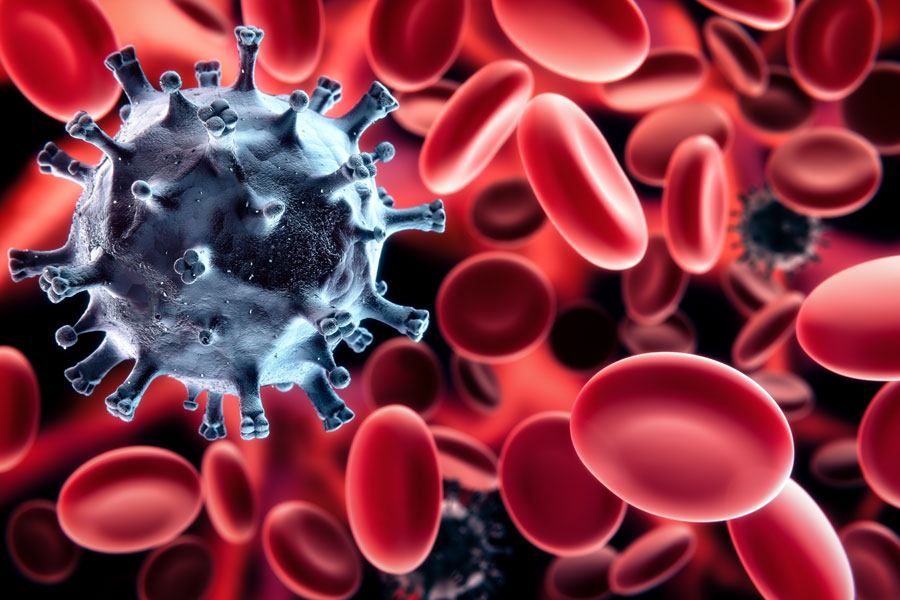 is getting more awareness than our immune system. Therefore, this is a perfect time to get the facts about the immune system.
is getting more awareness than our immune system. Therefore, this is a perfect time to get the facts about the immune system.
What is the Immune System?
The immune system is an intricate defense system powered by blood (five liters) and lymph. Lymph is a transparent and neutral (colorless) fluid that passes throughout the tissues of the body. Together, these two liquids transport all the elements of the immune system enabling them to do their jobs. For more information on the lymph system, please read the article, All about the Lymphatic System on this website.
The immune system is made up of a system of cells, tissues, and organs that collaborate to protect the body against infection and sustain health on the whole.
The human body is the most favorable environment for pathogens, such as bacteria, viruses, fungi, and parasites to thrive. The immune system works to keep a tight rein on these microbes (microorganisms) access to the body and prevent them from growing and causing illness.
While most people know the basic function of the immune system, there are many intricacies about the body’s natural defense system that we may not be aware of.
As long as the immune system is running properly, one never notices that it’s around. But if it discontinues working properly – either because it’s weak or can’t fight especially aggressive germs – one will become ill. Germs that our bodies have never come across before are additionally likely to make one ill. Some germs will only cause illness the first time an individual may come into contact with them. These involve childhood illnesses such as measles.
Without the immune system, there would be no way to fight harmful substances that enter the body from the out
side or harmful changes that occur inside the body.
How Does the Immune System Work?
There are several parts involved with the immune system and each part has a unique function of defense to protect the body.
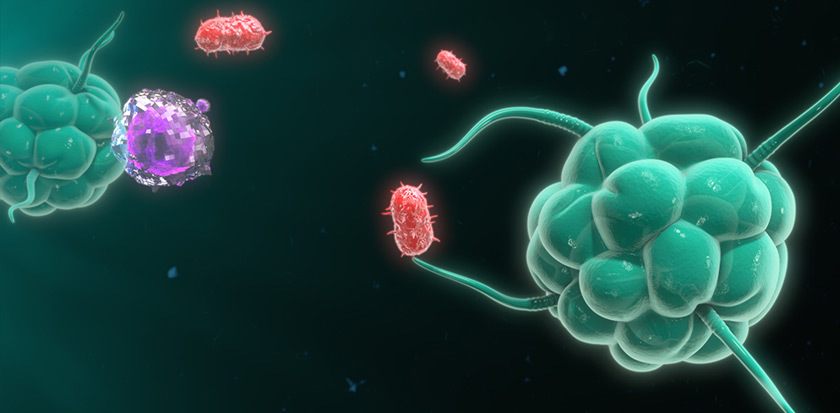
The key parts of the immune system are:
- white blood cells
- antibodies
- complement system
- lymphatic system
- spleen
- bone marrow
- thymus
The first line of defense is the white blood cells, which are the earliest to recognize pathogens and fight off infection. Lymphocytes, a specialized type of white blood cells, act to allow the body to remember the invading microbes to fight them faster in future infections.
They are made in the bone marrow and are part of the lymphatic system.
White blood cells travel through blood and tissue throughout the body, searching for foreign invaders (microbes) such as bacteria, viruses, parasites, and fungi. When they discover them, they commence an immune attack.
White blood cells consist of lymphocytes (such as B-cells, T-cells, and natural killer cells), and numerous other types of immune cells.
Next, we have antibodies. Antibodies aid the body to battle microbes or the toxins (poisons) they generate. They do this by recognizing substances called antigens on the surface of the microbe, or in the chemicals they create, that mark the microbe or toxin as being foreign. The antibodies then symbol these antigens for destruction. There are numerous cells, proteins, and chemicals included in this attack.
Next, we have the lymphatic system which is a network of delicate tubes throughout the body. The main role of the lymphatic system is to react to bacteria.
The spleen is a blood-filtering organ that eliminates microbes and destroys old or damaged red blood cells. It additionally produces disease-fighting mechanisms of the immune system that includes antibodies and lymphocytes).
Bone marrow is the spongy tissue found inside the bones. It generates the 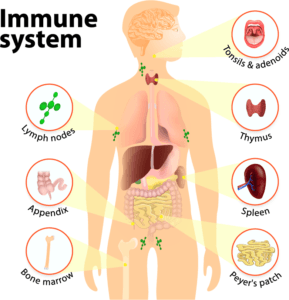 red blood cells the body needs to carry oxygen, the white blood cells we use to combat infection, and the platelets needed to help the blood clot.
red blood cells the body needs to carry oxygen, the white blood cells we use to combat infection, and the platelets needed to help the blood clot.
The thymus cleanses and monitors the blood content. It also generates white blood cells called T-lymphocytes.
In addition to the direct action of the immune system, the body has other ways to defend itself against microbes such as
- Skin – provides a waterproof barrier that emits oil with bacteria-destroying properties.
- Lungs – mucous contained in the lungs (aka phlegm) entrap foreign particles, and small hairs (aka cilia) sway the mucous upwards enabling it to be coughed out.
- Digestive tract – has a mucous lining which contains antibodies, and the acid in the stomach can eliminate most microbes
- Other defenses – bodily fluids like skin oil, saliva, and tears contain anti-bacterial enzymes that aid in reducing the risk of infection. The constant flushing of the urinary tract and the bowel helps additionally.
- Fever – An increase in body temperature, or fever, will happen with some infections. This is in fact an immune system response. A rise in temperature can actually destroy some microbes. Fever additionally activates the body’s repair process.
Disorders of the Immune System
It is generally common for individuals to have an over or under active immune system. Over activity of the immune system can take several forms, including:
Allergic diseases – This is where the immune system makes an excessively robust response to allergens. Allergic diseases are very regular. They include allergies to foods, medications or stinging insects, anaphylaxis (life-threatening allergy), hay fever (allergic rhinitis), sinus disease, asthma, hives (urticaria), dermatitis and eczema
Autoimmune diseases
– These are diseases where the immune system launches a response against natural components of the body. Autoimmune diseases range from frequent to infrequent. They encompass multiple sclerosis, autoimmune thyroid disease, type 1 diabetes, systemic lupus erythematosus, rheumatoid arthritis, and systemic vasculitis.
Under activity of the immune system, also known as immunodeficiency, can:
be inherited – These conditions include primary immunodeficiency diseases such as common variable immunodeficiency (CVID), x-linked severe combined immunodeficiency (SCID), and complement deficiencies.
occur as a result of medical treatment – this can develop because of medications such as corticosteroids or chemotherapy
be triggered by another disease
– such as HIV/AIDS or specific types of cancer.
An under active immune system does not function correctly and causes individuals to be vulnerable to infections. It is capable to be life-threatening in severe cases.
Individuals who have had an organ transplant usually need immunosuppression treatment to prohibit the body from attacking the transplanted organ.
Treatments
Immunoglobulin therapy – Immunoglobulins (commonly known as antibodies) are used to treat individuals who are unable to make enough of their own, or whose antibodies work improperly. This remedy is known as immunoglobulin therapy.
Until recently, immunoglobulin therapy in Australia mostly consists of the  delivery of immunoglobulins through a drip into the vein – known as intravenous immunoglobulin (IVIg) treatment. Now, subcutaneous immunoglobulin (SCIg) is often delivered into the fat under the skin, which can offer benefits for a few patients. This is known as a subcutaneous infusion or SCIg therapy.
delivery of immunoglobulins through a drip into the vein – known as intravenous immunoglobulin (IVIg) treatment. Now, subcutaneous immunoglobulin (SCIg) is often delivered into the fat under the skin, which can offer benefits for a few patients. This is known as a subcutaneous infusion or SCIg therapy.
Subcutaneous immunoglobulin is similar to intravenous immunoglobulin. It is made up of plasma – the liquid portion of blood containing important proteins like antibodies.
Download the SCIg introduction fact sheet to read more about this manner of treatment.
Numerous health services are now offering SCIg therapy to qualified patients with specific immune conditions. If you are interested, please discuss your particular requirements with your physician.
Immunization – Immunization works by replicating the body’s natural immune response. A vaccine (a small amount of a specially treated virus, bacterium or toxin) is inserted into the body. The body then produces antibodies to it.
If a vaccinated individual is exposed to that particular virus, bacterium or toxin, they will not become ill because their body will recognize it and will have the knowledge to attack it successfully. Vaccinations are obtainable against numerous diseases, including measles and tetanus.
The immunizations that are needed are decided by health, age, lifestyle, and occupation. Together, these factors are referred to as the acronym HALO, which is defined as:
- health – some health conditions or factors may make an individual more vulnerable to vaccine-preventable diseases. For example, the conditions, premature birth, asthma, diabetes, heart, lung, spleen or kidney conditions, mongolism, and HIV will mean an individual may benefit from additional or more frequent immunizations
- age – at different ages, people need defense from different vaccine-preventable diseases.
- lifestyle – lifestyle choices can have an impact on your immunization needs. Traveling overseas to certain destinations, planning a family, sexual activity, smoking, and playing contact sports that perhaps may expose an individual directly to another person’s blood, may yield benefit from additional or more frequent immunizations.
- occupation – An individual may likely to need extra immunizations, or need to have them more often if they work in an occupation that exposes them to vaccine-preventable diseases or puts them in contact with people who are additionally vulnerable to problems from vaccine-preventable diseases (such as babies or young children, pregnant women, the elderly, and people with chronic or acute health conditions). For example, if an individual works in aged care, childcare, healthcare, emergency services or sewerage repair and maintenance, discuss your immunization needs with your physician. Several employers may help with the cost of applicable vaccinations for their employees.
How to Boost the Immune System Naturally
In order to protect the body from harm, every component of the immune system is required to perform exactly according to plan. The best way one can ensure that happens is to practice the correct behaviors every day that the immune system runs on. Below are a few key ones.
A Healthy Diet – The nutrients get from food — in particular, plant-based 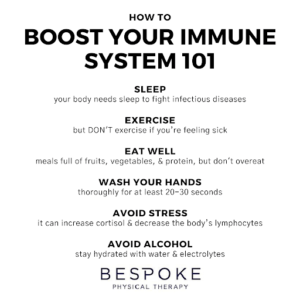 foods like fruits, vegetables, herbs, and spices — are crucial to keeping the immune system functioning properly. Many plant-based foods also have antiviral and antimicrobial markers, which help fight off infection.
foods like fruits, vegetables, herbs, and spices — are crucial to keeping the immune system functioning properly. Many plant-based foods also have antiviral and antimicrobial markers, which help fight off infection.
With the fast-paced lifestyle we live today, it is difficult to maintain healthy eating habits as we should. Not to mention that the way food is currently mass-produced we may not receive the nutrients intended. This is where supplementation comes in to supplement
the foods we consume.
There are natural supplements on the market that ensure that we receive the nutrients we need in the right quantities. For more information on an all-natural immune support supplement, CLICK HERE.
Control Stress – According to a review published in the October 2015 issue of Current Opinion in Psychology, long-term stress directs to persistently elevated levels of the steroid hormone cortisol. The body banks on hormones like cortisol during short-term bouts of stress (when the body goes into “fight-or-flight” response); cortisol has a beneficial effect of actually preventing the immune system from responding before the stressful event is over (so the body can respond to the urgent stressor). However, when cortisol levels are continually high, it basically hinders the immune system from kicking into gear and performing its job to protect the body against potential threats from germs like viruses and bacteria.
Proper Sleep – The body heals and regenerates itself during sleep, making sufficient sleep essential for a healthy immune response.
When the body doesn’t get enough sleep, the immune system may not perform as well, causing it to be less able to defend against harmful invaders opening the door for illness. One study published in the July–August 2017 issue of Behavioral Sleep Medicine discovered that compared with healthy young adults who did not have sleep problems, healthy young adults with insomnia were more vulnerable to the flu even after getting vaccinated.
Sleep deprivation additionally elevates cortisol levels, which evidently is also not good for immune function.
Regular Exercise – Regular exercise lowers the risk of acquiring chronic diseases (i.e. obesity, type 2 diabetes, and heart disease), in addition to viral and bacterial infections, according to a review in Frontiers in Immunology in April 2018.
Additionally, exercise increases the discharge of endorphins (a group of hormones that reduce pain and create feelings of pleasure) making it a great way to manage stress. Given that stress negatively impacts the immune system, this an additional way exercise can improve immune response. For more information on endorphins, please see the article, Facts about Endorphins: the Happy Hormone on this website.
Adults should be receiving at least 150 minutes (2 ½ hours) of moderate- force aerobic exercise (i.e. walking, jogging, or cycling) or 75 minutes (1 ¼ hours) of high- force aerobic exercise (i.e. running) every week. Also, one should be doing strength training at least twice a week.
For even more immune system benefits, it’s a good idea to perform the exercise outside. Spending time in the outdoors has been shown to buoy up mood, decrease blood pressure, decrease inflammation, and maintain the health of the immune system.
Keep I mind that the sun additionally boosts vitamin D in the body, which plays a key role in immune health as well.
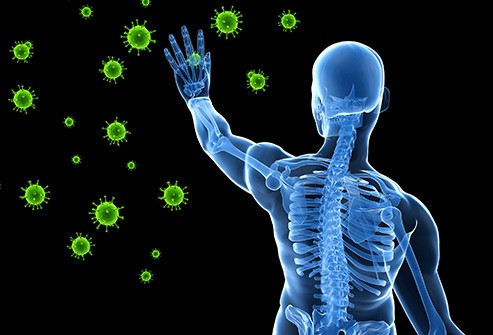
Consume Alcohol in Moderation – Consuming large quantities of alcohol is linked to a range of negative health effects, together with lowered immune function. When high amounts of alcohol are consumed, the body is preoccupied with trying to detoxify the system to be concerned with normal immune system function.
According to a review published in the journal Alcohol Research in 2015, highly elevated levels of alcohol consumption can weaken the body’s ability to fight infection and slow down recovery time. Consequently, individuals who consume high amounts of alcohol face a greater likelihood of pneumonia, acute respiratory distress syndrome, alcoholic liver disease, and certain cancers, according to the review.
It is best to consume alcohol occasionally if at all and limit consumption to one drink (equivalent to a 4-ounce glass of wine) per day if for a woman and two drinks per day for a man, as recommended by the NIH.
Quit Smoking – As with alcohol, cigarette smoking can affect immune health as well. Any toxin can compromise the immune system and cigarettes contain a plethora of toxins.
Especially, the chemicals released by cigarette smoke — carbon monoxide, nicotine, nitrogen oxides, and cadmium — can interfere with the growth and function of immune cells, like cytokines, T cells, and B cells, according to a November 2016 review in Oncotarget.
Cigarette smoking additionally worsens viral and bacterial infections (especially those of the lungs, such as flu, pneumonia, and tuberculosis), post-surgical infections, and rheumatoid arthritis (an autoimmune disease in which the immune system attacks the joints), according to the CDC.
Please note that in addition to not smoking, it is best to avoid secondhand smoke whenever possible.
Control Chronic Conditions – For individuals with chronic conditions, it is imperative to keep them under control.
Persistent conditions such as heart disease, asthma, and diabetes can affect the immune system and increase the risk of infections.
For example, when individuals with type 2 diabetes fail to manage their blood sugar properly, this can generate a chronic, low-grade inflammatory response that weakens the body’s defense system, according to an October 2019 review in Current Diabetes Reviews.
In the same way, individuals with asthma are more at risk to catching — and even dying from — the flu, and frequently encounter worse flu and asthma symptoms as a result of the infection, according to a study published in the July 2017 issue of the Journal of Allergy and Clinical Immunology.
When chronic conditions are managed better, more reserves are free up to help the body fight off infection. Therefore, an individual must be sure to stay on top of any medications, doctor visits, and healthy habits that keep symptoms at bay. It will pay off in the long-run.
Please feel free to leave any questions, comments, or concerns below.
Good Health!!
I must confess that we deserve to learn and know more about how we can be better prepared internally to fight against certain diseases. Most persons wish they had known what they know now a little sooner, it would have been a lot easier for them to deal with certain health challenge before it even showed up. This article is an eye opener indeed.
Hi Lucas – Yes, it is better in the long run to be proactive with our health. Maintaining a strong immune system will go a long way in fulfilling that goal. Thanks for commenting!
I believe that jts always a good thing for us to learn about our body system and also to understand how everything in our body works. You explained them here so well and I am just so happy. There are things that I read here about my system that I didn’t know before. I am sure I can go on to do better with this. Thank you very much.
Hey Jay – I am so happy that the article is helpful to you and I thank you for your comment. I wish you the best in your pursuit of good health. Remember, prevention is better than cure!